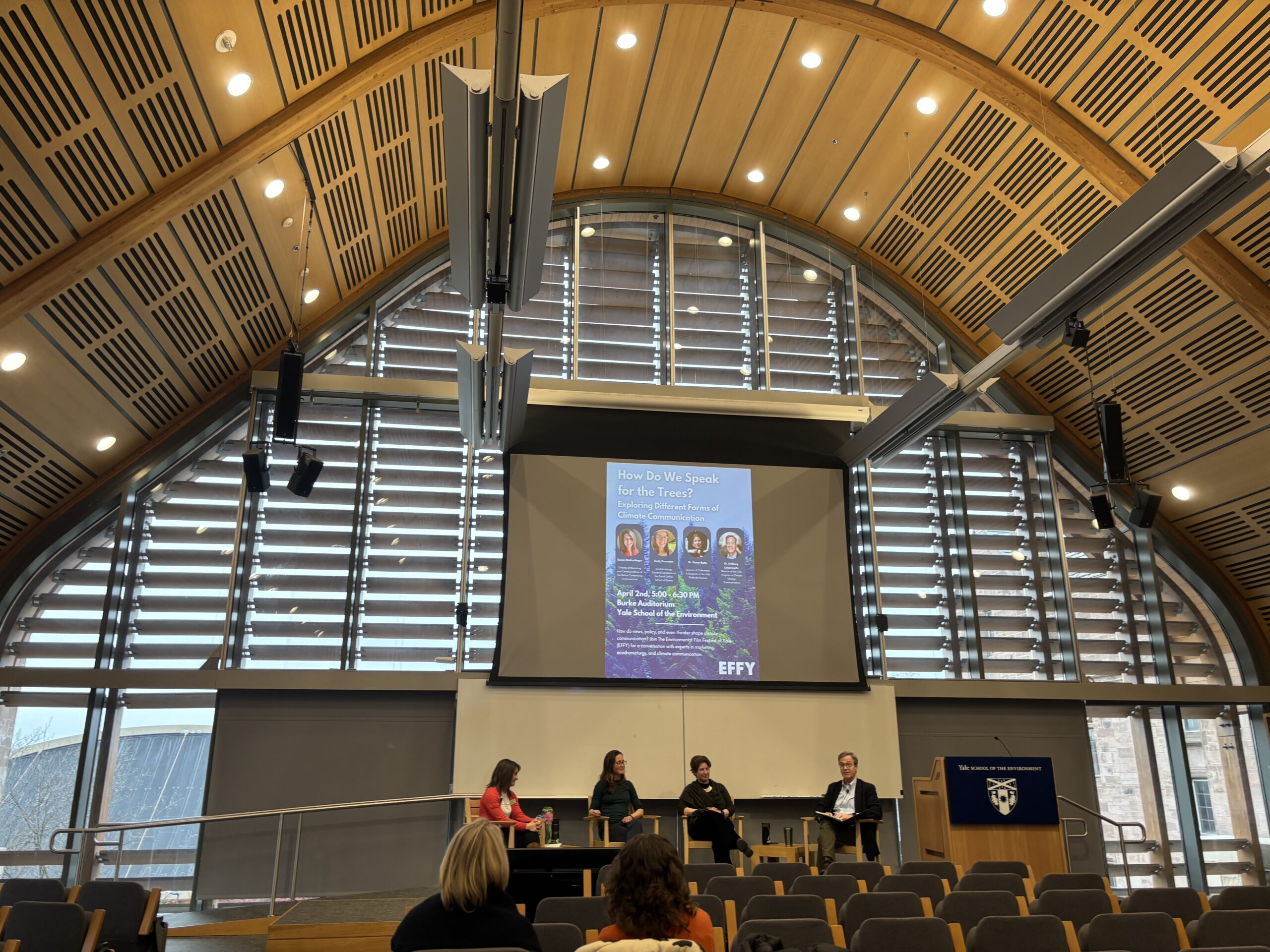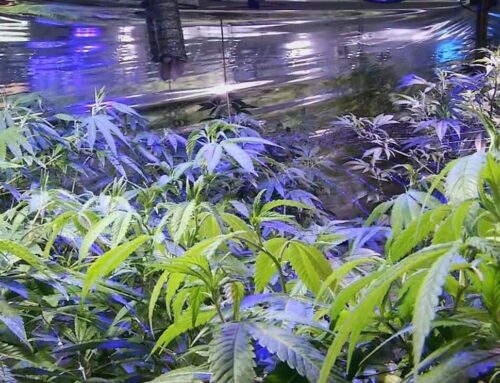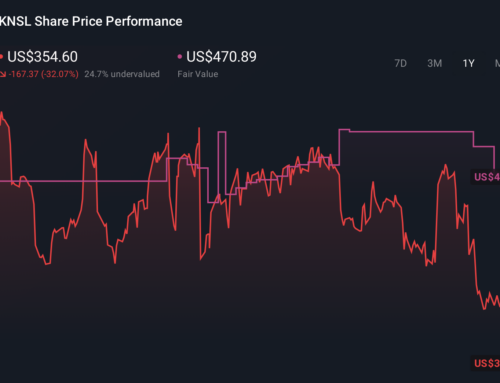Climate panelists seek to foster care and communication about the environment
April 3, 2025
The panelists spoke about the relevance of climate change in a talk as part of the Environmental Film Festival.
11:53 pm, Apr 03, 2025

Anya Geist, Contributing Photogapher
As part of the Environmental Film Festival at Yale, four panelists spoke about the importance of engaging the public with climate change on Wednesday in Kroon Hall.
The panelists, from the Nature Conservancy, the School of Drama, the Peabody Museum and the School of the Environment, discussed how to make climate change a more relatable issue for various audiences, including the value in creating a narrative arc about climate change, remaining optimistic about the climate and encouraging substantive engagement with nature.
“Climate change is so all-encompassing that it actually touches all of us in every single possible way,” said Anthony Leiserowitz, panel moderator and director of the Yale Program on Climate Change Communication. “Food you’re eating is related to climate change. If your kid has asthma, you should care about climate change. If you like chocolate, you should care about climate change. If you’re a person of faith, you should care about climate change.”
Leiserowitz works to make climate change universally understandable, so that a wide range of people understand how it affects their lives. As part of this, he hosts Climate Connections, a daily radio program broadcast across the country.
On Climate Connections, he incorporates stories about climate change from all sections of society, listening to the perspectives of Democrats, Republicans, politicians, scientists and more. He hopes this will help them appreciate the enormity and impact of climate change, without the influence of political discourse.
“How do we help people see that this is not an issue we need to care about only because of politics?” Leiserowitz asked at the panel. “The climate system doesn’t care whether you’re Democratic or Republican.”
Emily Sorensen, a doctoral candidate at the School of Drama, also spoke at the panel. She studies ecodramaturgy, which includes combining theater and drama with ecological topics.
In the past, she has worked with kids, helping them to explore and engage with nature. She acknowledged that sometimes it is challenging to remain optimistic, when information about climate change is typically disheartening.
“It’s so important to follow up saying ‘this is bad,’ with ‘this is what people are doing about it,’” Sorensen said. “So you can leave feeling that even though things are bad, we can work on it.”
It is important, Sorensen said, that the audience does not become discouraged but leaves feeling empowered.
Another panelist, Susan Butts, is the director of collections and research at the Peabody Museum. She explained that, in the Peabody’s exhibits, she and her colleagues try to tell a story, weaving together positive and negative parts of history to create a nuanced conversation.
For example, she said, “Let’s tell a story of corn. Let’s give this full-bodied story that looks at the history of corn, and then let’s also talk about conservation at the same time. So we learn that we’re affecting life on Earth in different ways, but we also learn how we’re protecting life on Earth.”
Butts and her colleagues seek to create a narrative that engages the audience, instead of alienating them, tying together many pieces of information to create a balanced presentation.
Additionally, panelist Susan Wollschlager, director of marketing and communications for the Nature Conservancy in Connecticut, explained that her organization encourages people to get out in nature. She referenced the Farmington River, one of Connecticut’s endangered rivers, which has been harmed by an outdated hydroelectric dam.
“Our hope is for people to think, ‘How is this ecosystem and habitat being affected? What could it look like if that whole area was restored?’” she said. “We want people that are hiking at the river to feel connected to that river, to want to protect it and learn more.”
Wollschlager aims to instill a sense of commitment and responsibility in her audience.
Furthermore, Leiserowitz said, spreading a message of love is crucial.
“At the heart of [our work against climate change] is love. We love certain things,” Leiserowitz said. “Even if you didn’t know about a creature in a documentary until you finally saw it, learning about it could inspire something in you to care about that creature, or that ecosystem, or that landscape, or those people, in a way that you didn’t fully appreciate before.”
The Environmental Film Festival takes place April 1-5.
ANYA GEIST
Search
RECENT PRESS RELEASES
Related Post



